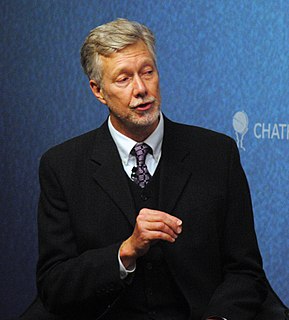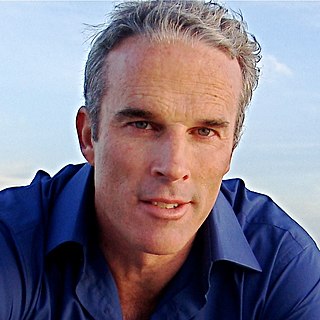A Quote by Kevin Bales
Yes, twenty-seven million in slavery is a lot of people, but it is just .0043 percent of the world's population. Yes, $23 billion a year in slave-made products as services is a lot of money but it is exactly what Americans spent on Valentine's Day in 2005. If humans trafficking generates $32 billion in profits annually, that is still a tiny drop in the ocean of the world economy.
Related Quotes
The collective shortfall of the 3.08 billion people (47 percent of world population) who, in 2005, lived below $2.50 per day was $507 billion per annum, which indeed comes to about two-thirds of the present US military budget. This gives us a rough sense of how much the eradication of poverty would cost.
OPEC production went from 30 million barrels a day to 33 million. They flooded the market, and it's lost them a lot of money. Look at the Saudis: they just floated a $17.5 billion debt offering, they earlier borrowed $10 billion from a group of international banks; they're selling part of Aramco - they're desperate for money.
We talk of globalization, and how much money is needed for the education of children in the world, their liberation and rehabilitation just $9 billion which is four days of military expense. Just four days. Nine billion dollars is nothing. But what Americans spent on ice cream just 20 percent of this. One fifth of what you spend on ice creams could bring the children out of the clutches of their masters and put them to school.
This is not some alarmist Orwellian scenario; it is here, now, financed by $20 billion last year and $15 billion more this year of federal money appropriated out of sheer fear. By creating the means to monitor 300 million visits to the United States yearly, this administration and a supine opposition are building a system capable of identifying, tracking and spying on 300 million Americans.
The money economy thus leaves a large ecological footprint, defined as the amount of land and resources required to meet a typical consumer's needs. For example, with only about 4% of the world's population, the United States, the largest money economy, consumes in excess of one-quarter of the world's energy and materials and generates in excess of 25 percent of the world's greenhouse gas emissions.
Throughout all of human history we have consumed the natural world. All creatures do. Birds do. Fish do. Earthworms do. We consume the natural world as a source of our survival. But no creature has ever consumed at the scale that humans have, and now there are seven billion of us. I think the good news is that a large percentage of those seven billion minds can work to make better decisions.
Roughly two billion people participate in the money economy, with less than half of those living in the wealthy countries of the developed world. These affluent 800 million, however, account for more than 75 percent of the world's energy and resource consumption, and also create the bulk of its industrial, toxic, and consumer waste.
We've got the emPHAsis on the wrong sylLAble when it comes to crime in this country. The FBI says burglary and robbery cost U.S. taxpayers $3.8 billion annually. Securities fraud alone costs four times that. And securities fraud is nothing to the cost of oil spills, price-fixing, and dangerous or defective products. Fraud by health-care corporations alone costs us between $100 billion and $400 billion a year. No three-strikes-and-you're-out for these guys. Remember the S&L scandal? $500 billion.


































